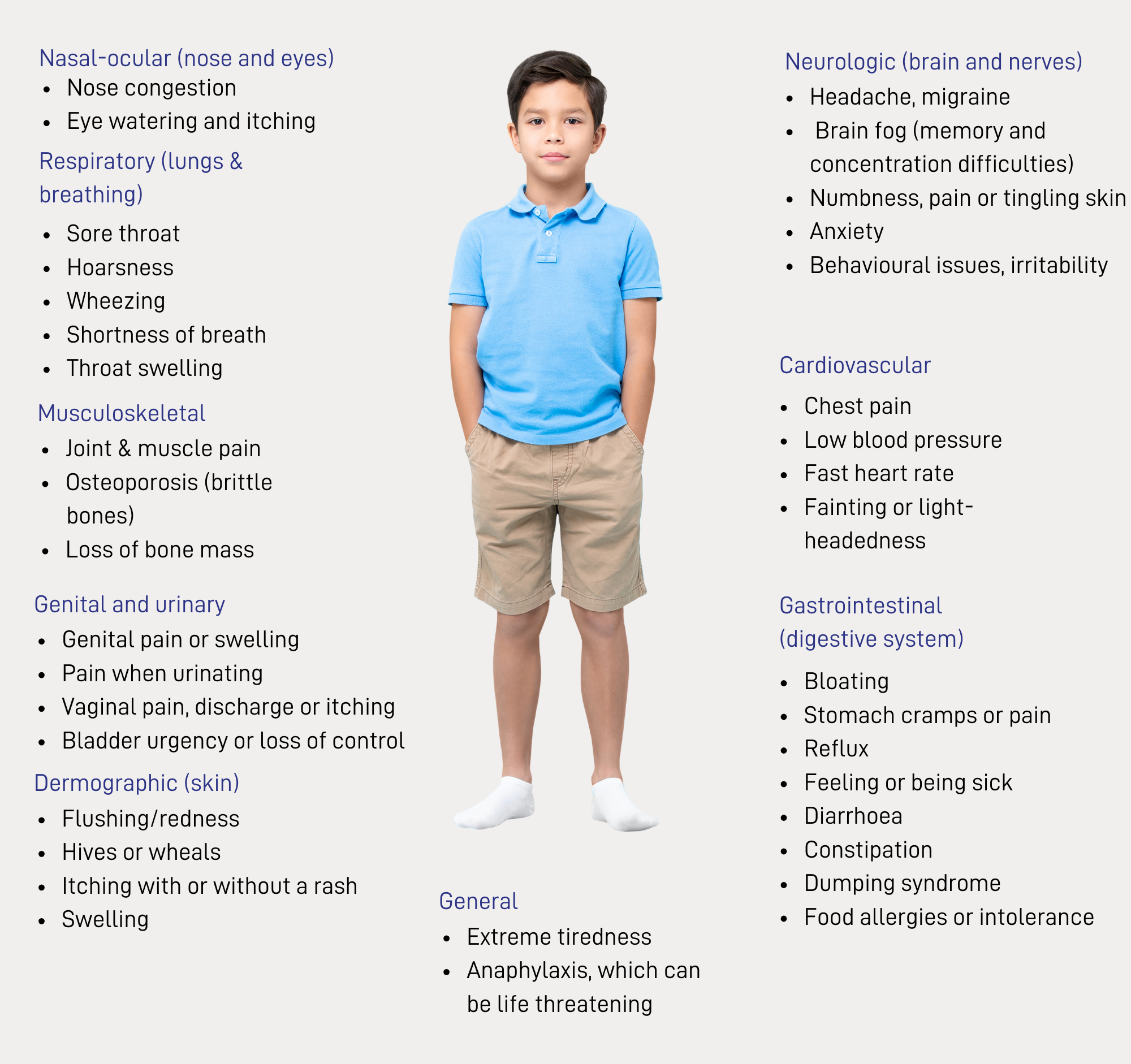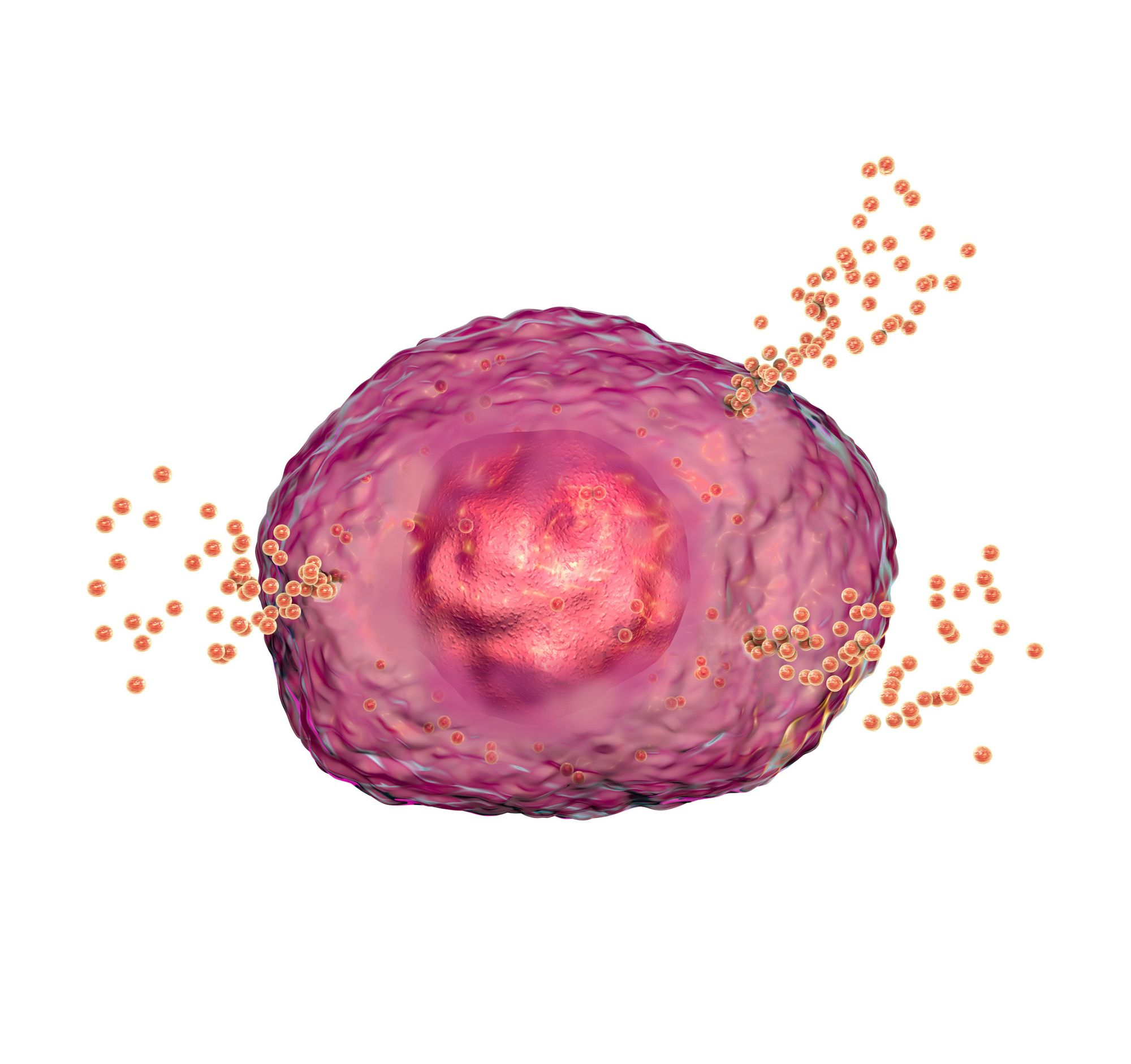

MCAS Symptoms
MCAS symptoms are often unpleasant, debilitating and wide-ranging - affecting different parts of the body at the same time. We hope that the symptoms PDF we have created will be useful in considering your own symptoms and also for explaining them to others.
MCAS symptoms often come and go and their severity can fluctuate over time. In some cases, people may experience mild symptoms for a long time before seeing a sudden increase in the frequency or severity of their symptoms. Sometimes there is an incident which triggers this sudden increase in symptoms - such as a severe infection or a medical procedure or operation.
The extent of symptoms for people living with MCAS can be substantial. The potential severity of symptoms along with the unpredictability of triggers can mean that the everyday lives of people with MCAS, their families and carers are considerably impacted.
If you are struggling with specific symptoms, you may find it useful to discuss these with your medical professional as they may be able to help. Many people with MCAS find that when they gain some stability of their mast cell condition, their overall symptoms lessen. Keeping a diary to track your symptoms to share with medics can be useful in helping them to understand what you are experiencing.

What are mast cells?
Mast cells are a type of blood cell which are found in all body tissues. These cells play a key role in the immune system. In the event of an injury or an infection, mast cells become active and release chemicals called mediators. In a healthy state, mast cell mediators create a number of protective responses in the body to help fight infection and promote healing.
In someone with MCAS, where these mediators are released too frequently, they can affect the body in multiple ways - causing multiple symptoms in different parts of the body at the same time.
Recognising anaphylaxis
Anaphylaxis refers to a serious allergic or hypersensitivity reaction which can affect multiple body systems and can range from mild to severe (potentially life-threatening). The specific triggers of anaphylaxis vary between individuals and in some cases the trigger may be unclear (these cases are referred to as ‘idiopathic’).
Common triggers include foods, stinging insect venoms and drugs. Given the sudden onset and potentially fatal consequences of anaphylaxis, it is important to quickly recognise the typical signs and symptoms of these reactions.
Anaphylaxis is highly likely when the following signs are present:
- Rapid onset (within minutes to hours) of symptoms involving the skin or mucosal tissue (skin lining the body cavities e.g. inside the mouth and nose) for example, swollen lips or tongue
- Breathing difficulties
- Reduced blood pressure, collapsing, incontinence (lack of bladder control)
- Persistent gastrointestinal symptoms such as cramps, abdominal pain or vomiting
Become a friend
Sign up to become a Friend of Mast Cell Action so we can keep you up to date on our progress and on how to get involved in our latest campaigns and initiatives.
Donate
Mast Cell Action relies entirely on the generosity of people like you. Please make a donation now and together we can make a difference to those affected by MCAS.







